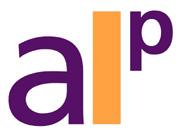Increasing the breadth of IAG

Many young people’s long-term life chances are determined during the transition from education to the labour market. Under the current system, they have to decide at the age of 16 whether to stay at school in the sixth form, continue their full-time education at college, undertake work-related training, or find a job without a training element.
Information, Advice and Guidance (IAG) services play a pivotal role in delivering the Skills Strategy. These services promote the benefits of learning, help individuals to address and overcome the barriers to learning, and support them in making realistic and well-informed choices.
There has long been a push to encourage young people to obtain good GCSE’s and A levels to enter university, and many have successfully done just that.
The enhanced policy attention is linked to a number of factors, which include raising the participation in learning age to 18, introduction of diplomas at 14-19, expanding the number of Apprenticeships, and also increased concern for social mobility and broadening access to higher education.
In an exclusive interview with FE news, Graham Hoyle, the chief executive of the Association of Learning Providers (ALP), expressed his concerns over the quality and the breadth of IAG and how the work-based training route is still not being appropriately explained to young people in the UK.
“There is a whole bundle of young people who quite frankly aren’t ready at that age to go down the route through A-levels and there are young people who have got the capacity, and who actually would be better served by going a different route,” said Mr Hoyle.
With the hike in university fees to £9000 per annum, the work-based route and Apprenticeship schemes provide a great opportunity which more young people really should know and consider, according to Mr Hoyle.
Expressing his worries, he said: “It is an absolute disgrace that there are schools who are not availing all their youngsters to the full range of options. Few schools still do not allow Connexions advisers or local work base advisors as part of their careers information service.
“Young people and their parents and advisers need to have a very clear understating about the different routes that should be taken, based on their abilities, their potential and their preferred and most effective learning modes.”
According to ALP, the IAG Partnership and stakeholders need to focus more in future on:
- The knowledge pool – to create an improved, more comprehensive and consistently updated knowledge pool covering learning and work opportunities across the country.
- Provision – producing consistently updated and more inclusive information about the extent, range, effectiveness and impact of IAG provision, including a new set of Management Information protocols that ‘read across’ different funding streams and regimes.
- Need – developing a more systematic and strategic understanding of adult and young people IAG needs, opportunities and priorities.
- Planning and funding – taking a more integrated view and internally coherent approach to the planning of local funding for IAG
- Strategy – producing an IAG strategy with a strong focus on purpose and need, balanced by a realistic assessment of the national policy and funding drivers.
Aastha Gill
Click on the video below to find out more about new plans for IAG:
http://www.youtube.com/watch?v=IgrhZ55Mdss&feature=related






Responses